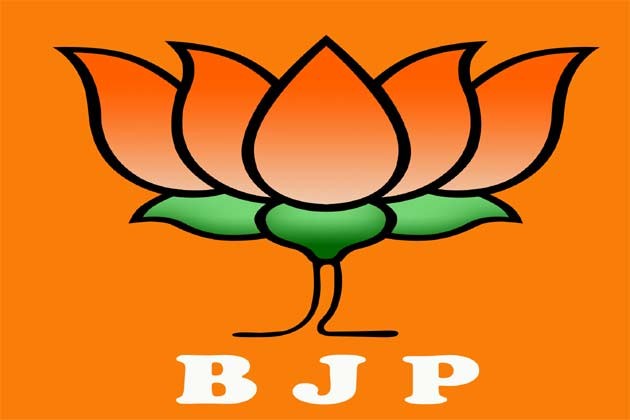
The ruling Bharatiya Janata Party (BJP) is hoping for a triumph this year in at least 50 Lok Sabha seats in the south of the country, namely the states of Karnataka, Tamil Nadu, Andhra Pradesh, Telangana and Kerala, and the Union Territory of Puducherry, which together send a total of 130 parliamentarians to the Lower House.
According to party sources, BJP's prime focus is Karnataka, where the party hopes to win 25 of the 28 Lok Sabha seats. In Tamil Nadu, the party is in the process of stitching together a "bigger rainbow alliance", sources say.
In the wake of Sabarimala temple row, there is a consolidation of Hindu votes in favour of the BJP, political observers say, and the party is confident of winning five to six Lok Sabha seats in the state. In Andhra, the party is focusing on as many as 10 Lok Sabha seats and wants to repeat the performance 1999 performance in the state, sources say.
In Karnataka, where the Assembly elections were held in May 2018, the party's infrastructure and organisational base are very much intact, said a party leader dealing with organisational work. In fact, the BJP emerged as the single largest party during the last assembly elections. After the elections, the party has aggressively puklle dits weight on booth strengthening, the sources said. All war rooms which were opened during the assembly elections are going on in full force, they say.
"The BJP is in a formidable position in Karnataka," said BJP general secretary Muralidhar Rao, who is the Lok Sabha election in-charge for Karnataka.
Party sources say Karnataka BJP president and former chief minister BS Yeddyurappa is playing a pivotal role in the run-up to the Lok Sabha polls. Yeddyurappa has already appointed the election in-charges and conveners in all 28 Lok Sabha constituencies in the state.
"The Lingayat strongman has influence, personally, not only on voters from the community, but he is equally popular among Vokalingas, Kurbas, Brahmins, OBCs and SCs," said a party leader.
The BJP is heavily banking on various schemes of the Modi government and how the state has benefitted in the last five years from the Centre's schemes; the party will seek votes on these bases, sources said.
As part of its strategy, the party may change some sitting MPs, sources added.
In Tamil Nadu, which has 39 Lok Sabha seats, the party is in the process of building a "bigger rainbow alliance", which is likely to bring AIDMK on board. It may be noted that senior AIDMK leader and Tamil Nadhu Chief Minister Edappadi Palaniswami shares a rapport with Prime Minister Narendra Modi and BJP president Amit Shah.
Further, the party had played a key role in ending the rift between two DMK factions, affiliated to Palaniswami and O Panneerselvam.
Prime Minister Narendra Modi is scheduled to visit Madurai on January 27 and flag off the party's election campaign after laying the foundation of an All India Institute of Medical Sciences (AIIMS).
In 2014, the party went to the elections with an alliance which included MDMK, PMK and other smaller parties. The alliance won two seats from the state; BJP and PMK had bagged one each. More importantly, the alliance had won a whopping 18.5 per cent vote share.
"We have enough experience of running an alliance government in Tamil Nadu. We will definitely work it out in the next few days," said Rao, the party in-charge for Tamil Nadu.
In the wake of Sabarimala row in Kerala, political observers say, there is a massive consolidation of Hindus in favour of the BJP. In addition, the party is also reaching out to the Christians in a big way.The party has taken over the anti-government space completely, said Rao. "We will be certainly gaining in 2019 Lok Sabha elections," he said.
The party is planning to win five to six seats in the state, albeit through the alliance route. Party sources say, the BJP is eyeing on Lok Sabha constituencies like Thiruvananthapuram, Thrissur, Palakkad and Attingal.
In Andhra Pradesh, which has 25 Lok Sabha seats, the BJP is focusing on 10 seats and is confident of winning at least six seats. The party wants to replicate its 1999 performance when it had won seven seats from an undivided Andhara Pradesh. A BJP leader claimed that there is an "anti-incumbency" sentiment against Chandrababu Naidu and his Telugu Desam Party after he left the NDA, and the BJP will turn that sentiment in its favour.
"In 1999, we won seven seats in undivided Andhra because of then Prime Minister Atal Bihari Vajpayee's popularity. This time, it is Prime Minister Narendra Modi's popularity that will win us votes. We will certainly do well," said BJP national secretary Sunil Deodhar, the Lok Sabha election co-in-charge for Andhra.
"In the South, how much the BJP can gain by itself and in association with others is one aspect. The second aspect is the NDA's gain. The third thing is not allowing anti-BJP parties to gain. These are the three dimensions of BJP's strategy in the South," said Rao.


.jpeg)

